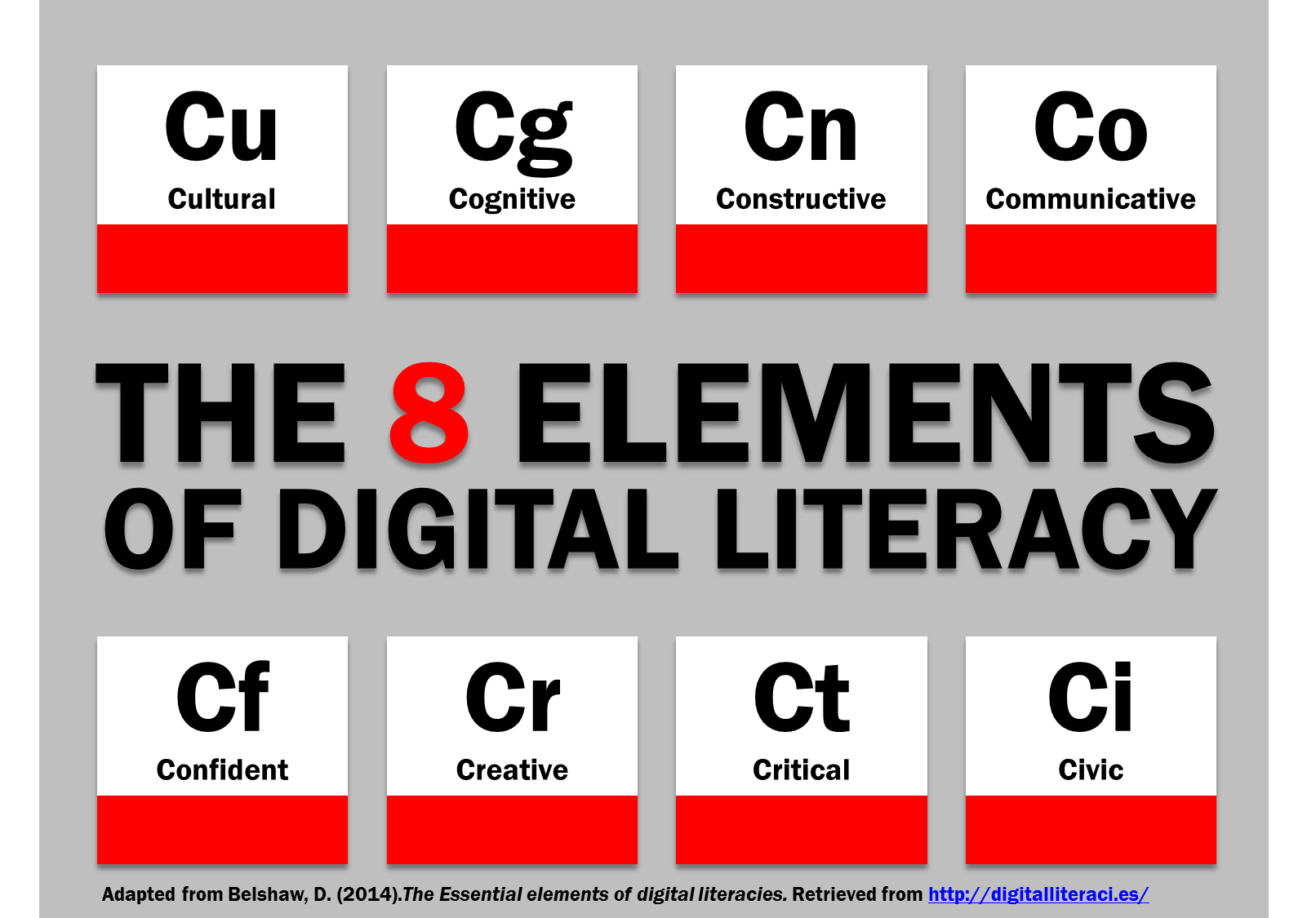What is Digital Literacy?
"Digital Literacy" is one of those phrases that is at once obvious and jargony, all at the same time.
First, it’s just what it sounds like: a conceptual understanding of digital terms, items, and philosophies.
But what on earth does that mean?
If you are good with some things, but are clueless about others, does that make you digitally illiterate?
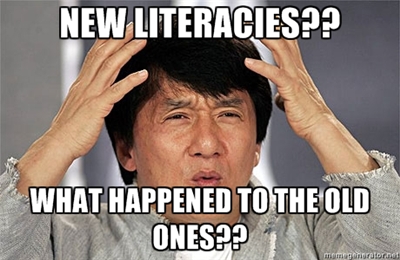 Of course not!
Of course not!
Thing One: Digital literacy is fluid
The American Library Association defines digital literacy as “the ability to use information and communication technologies to find, evaluate, create, and communicate information, requiring both cognitive and technical skills.” One could go a step further and define digital literacy as:
an ever changing consideration of sociocultural understanding regarding technologies and the uses of those technologies across an individual person or larger group's life and experiences.
Depending on where you are in life, or how much interest you have in certain technologies, or even the time of day, your digital literacy is different from the next person’s. As you can see from the definition, it’s not the same for every person; it ranges based on that person’s interests, access, and experience.
Thing Two: There are different kinds of digital literacy
Obviously, digital literacy isn’t all-encompassing. But it’s also important to know that it’s almost impossible to have an overarching digital literacy. Instead, every person has more of a collection of digital literacies.
Say you’re pretty computer savvy. You know the basics of using the average operating systems, know some things about surfing the web, and have a social media account or two. You’re digitally literate.
Say instead that you’re not sure about the differences between Windows 10 and Mac OS X, and couldn’t give a fig about social media, but you have mastered the complete Adobe Creative Suite. You’re still digitally literate.
Digital literacy isn’t about knowing All The Things. It’s about knowing what you need to know in your environment, for your situation. If you live or work in an environment where certain knowledge is expected, then of course you need to make sure you have all of those literacies.
Or work to acquire them.
Thing Three: You’re always working to improve your digital literacy, whether you know it or not
Facebook randomly changed their layout; what do you do? If your answer is “figure out where everything is” then you’re into improving your digital literacy. Whether something you’re already familiar with is suddenly different and you have to learn it again, or something worthwhile has shown up on your radar and you make the choice to try it, you are making yourself open to new digital literacies and building upon the ones you have already.
Even reading a blog post about a new social media platform, or a news article about the next iPhone is improving your digital literacy.
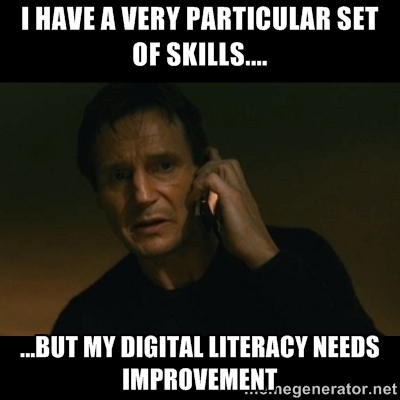 Thing Four: “Digital Natives” are not automatically more digitally literate
Thing Four: “Digital Natives” are not automatically more digitally literate
There’s an interesting phrase for you: digital native.
According to legend, the Digital Native is the person who grew up with modern technology; they don’t remember a time before cell phones and the internet, and they are born knowing everything about everything with an on switch.
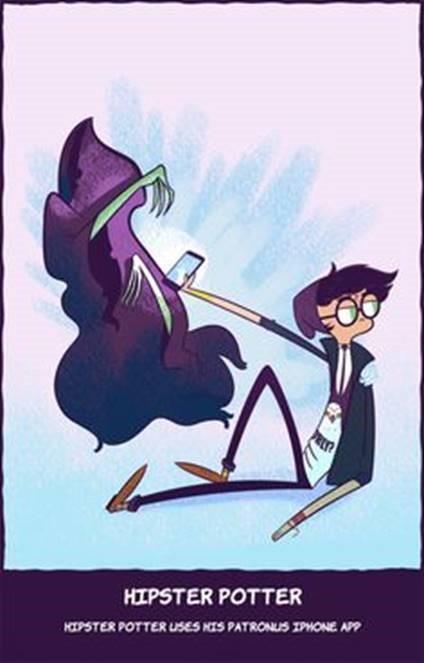 This logical fallacy has been perpetuated by the image of the plugged-in Gen-Z-er who can lay hands on any object considered technology and tell you how it works, what to do with it, and the best ways to use it. This image of the teenaged hacker has been perpetuated in lots of places, but doesn’t really fit in with the average young person.
This logical fallacy has been perpetuated by the image of the plugged-in Gen-Z-er who can lay hands on any object considered technology and tell you how it works, what to do with it, and the best ways to use it. This image of the teenaged hacker has been perpetuated in lots of places, but doesn’t really fit in with the average young person.
That isn’t to say that young people aren’t digitally literate; on the contrary, many young people know far more than anyone gives them credit for.
But there’s a reason for that; they were willing to learn. They had parents, friends, teachers and librarians who gave them tips on how to keyword search, or what best practices to use when deciding on iPhone apps. They may have adjusted to new tech being thrown their way, but they weren’t simply born into it.
But we’ll go into that more in-depth at another time.
***
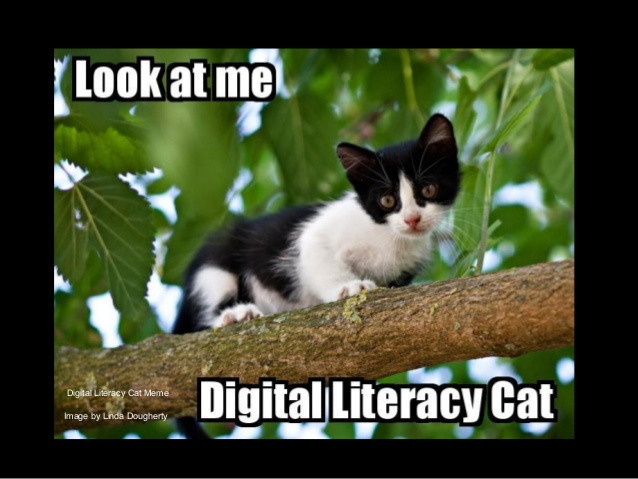 Do you have the types of digital literacy you want?
Do you have the types of digital literacy you want?
Where do you want to start?

